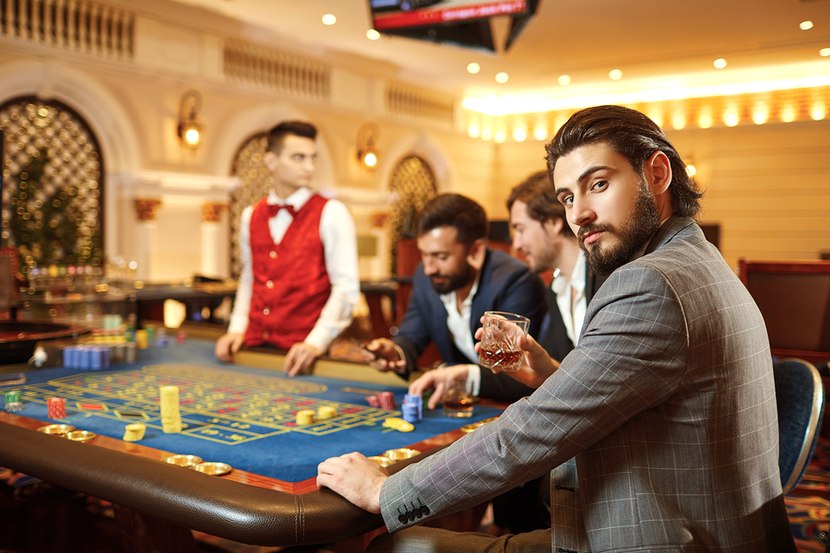
In the world of gambling, where chance and strategy intersect, a unique tapestry of beliefs emerges—one that weaves together luck, fate, and the enigmatic nature of casino games. Casinos, bustling with excitement and anticipation, are not just places for placing bets; they are also arenas where superstitions thrive. Ranging from the novice player to the seasoned gambler, these mysterious practices often shape how individuals approach the games they play, holding the belief that their actions can impact the outcome in ways that go beyond mere probability.
As players gather around roulette wheels, blackjack tables, and slot machines, the atmosphere is thick with stories of lucky charms, rituals, and codified behavior that defy logic yet provide a sense of comfort. It could be the case that it’s wearing a specific outfit, following a particular sequence of bets, or even avoiding certain numbers, the attachment to various superstitions reflects a deep-rooted desire to master the uncontrollable. This article delves into the captivating world of casino game superstitions, examining the beliefs that both entertain and mystify those who dare to play.
Historical Roots of Superstitions
Betting activities have long been connected with an host of superstitions that go back to early societies. The beginnings of these ideas can be associated to humanity’s fundamental wish to manage the uncertain outcomes related with chance and uncertainty. In ancient civilizations, activities of chance were often connected to spiritual practices. xoilactv Gamblers would call upon favor or seek favor from deities, believing that their actions could influence the odds in their favor. This basis laid the foundation for the myriad of superstitions that spread as gambling evolved over centuries.
During the medieval period, betting became a common activity across the continent, and with it, a diverse tapestry of superstitions appeared. Participants adopted different rituals and charms, believing they could affect the outcome of games. The significance of digits, in particular, started to show in superstitions around card games and dice. The number seven was often considered favorable, while different numbers carried negative connotations. These notions mirrored the cultural contexts of the time, changing as they moved through generations and changed to new gaming environments.
As gaming establishments emerged in the 17th century, particularly in Italy and the French nation, the atmosphere surrounding betting became saturated in enigma. The growing availability of casino activities allowed for the spread and growth of superstitions among players. Concepts like fortunate charms, special seating locations, and rituals gained prominence, creating a unique culture within casinos. As these traditions continued to thrive, they became essential to the identity of casino activities, illustrating how historical developments and tradition shape the convictions that influence how gamblers connect with luck.
Widespread Casino Superstitions
Beliefs surrounding casino activities are plentiful and varied, mirroring the dreams and fears of players as they participate in random activities. One of the most common views is that specific digits bring luck or bad luck. For example, the digit seven is often seen as a lucky number, frequently sought after by players looking for a favorable outcome. Conversely, the digit 13 is routinely considered cursed, leading many players to avoid it during their gaming sessions.
Another frequent belief relates to rituals that gamblers believe can influence their chances. It could be blowing gently on dice before a roll, using a specific gesture to place a bet, or even putting on particular items of attire, many people feel that these rituals can sway luck in their benefit. These rituals offer a feeling of power in an otherwise random environment, strengthening the idea that fortune can be created through personal convictions and customs.
Lastly, the environment and atmosphere of the casino itself adds to myths. Many gamblers suggest that the presence of specific icons, such as four-leaf clovers or fortunate coins, can enhance their odds of winning. Additionally, players might hold to the belief that winning streaks can be halted by mundane occurrences, such as a person passing by or a accident at the gaming surface. The collective environment in a casino can amplify these beliefs, creating a shared culture of myths that transcends individual experiences.
Impact of Superstitions on Players
Superstitions play a important role in the mindset of gamblers, often influencing their actions and choices. Many gamblers believe that fortune can be manipulated through different rituals, such as wearing a lucky charm, choosing particular hues, or steering clear of particular digits. This dependence on superstitions can create a feeling of control in an environment that is inherently unpredictable. Players frequently feel more confident and involved when they believe that their actions could sway the outcome of a game in their advantage.
The impact of these superstitions extends past individual players, affecting the overall atmosphere inside the casino. For instance, a player who believes in the luck of a certain slot machine might attract a gathering, as onlookers are fascinated by their apparent success. This shared belief can heighten excitement and create a dynamic environment, leading to an captivating experience even for those who may not necessarily be superstitious. The buzz around specific games can lead to increased participation and extended playing sessions, supporting the casino’s lively social scene.
In some cases, superstitions can lead to negative effects for players. Relying too heavily on rituals can result in bad gambling decisions, as some may ignore basic strategies in favor of baseless beliefs. Additionally, the stress to perform rituals may heighten anxiety and stress levels, diminishing from the enjoyment of the experience. Ultimately, while superstitions can enhance the thrill of playing casino games, they can also lead to poor choices that overshadow the fun and amusement intended in the casino experience.
